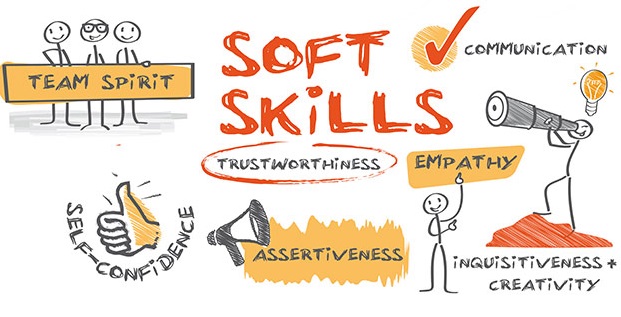Soft Skills in the Quality Industry
October 01, 2018
Quality professionals need strong interpersonal skills.
Without a doubt, quality professionals are expected to be well versed in technical skills. Proficiency with the various quality tools and techniques is paramount for the quality professional to lead their organization to performance excellence. In the current environment, that is just not enough to be truly successful.
Have you ever asked yourself why a certain quality engineer was promoted to quality manager over others more qualified? Why are some quality professionals more successful than others who are more technical and work just as hard? Why do some quality professionals get more done than others? What’s the difference between good performers and great performers?
The answer just might be found in their soft (interpersonal) skills. The term “interpersonal skills” is somewhat of a misnomer because it refers to various character traits possessed by someone rather than skills that can be taught in a classroom. Some of the other more common terms are soft skills, social skills, and people skills.
Even if quality professionals excel at the technical aspects of their job, if they are a disaster to work with, their presence on the job will likely not be well-received. Those with poor interpersonal skills are generally not considered team players.
Not only do coworkers appreciate good interpersonal skills, but employers have also noticed the value. While technical skills remain critical, soft skills have become increasingly important criteria used to evaluate and select candidates. Maybe that is why some human resource professionals and hiring managers use the term “employability skills” in reference to interpersonal skills.
Hiring managers often seek quality professionals with strong interpersonal skills because they want people who can work well in a team environment and be able to communicate effectively with coworkers, clients and customers.
Within the workplace, quality professionals with good interpersonal skills are likely to be more productive because they typically project a positive “can do” attitude, creatively uncover solutions to problems and proactively help others succeed.
Quality professionals with good interpersonal skills are more optimistic, calm, confident, and usually very charismatic. They demonstrate the ability to get along with others, elevate the performance of others, enhance a positive work atmosphere, and get the job done more effectively and efficiently. These qualities are magnetic and appeal to their peers as well as management.
There are a host of interpersonal skills. For the sake of brevity, listed are some of the skills experts believe are among the more important: collaborative, dependable, tactful, friendly, empathetic, sensitivity, respectful, honest, trustful, helpful, communicative (verbal, written, non-verbal, listening), open-minded, positive and considerate.
Many believe that interpersonal skills, to some extent, are innate in each person—that “they are what they are.” It is very likely that we are born with a certain predisposition for these traits, and that they might be an early indicator of greatness.
There is also substantial evidence that people can take steps to improve their interpersonal skills and make themselves more valuable to their organization. Reinventing oneself is possible through an awareness of how one interacts with others, but it does take a high degree of commitment and a lot of practice.
A good starting place is to become more understanding and sensitive to others. Seek out those who are struggling and need a little help. Without expecting anything in return, assist them in accomplishing their goals and silently bask in the knowledge that you may have made a big difference in the outcome.
Plan out your communications rather than saying or writing the first thing that comes to mind. Thinking about how your communications will be received could make a huge difference in how others perceive your supportiveness to both your peers and your organizational management. Become an active listener so people realize that you are interested in them, their problems, and that you have a willingness to help.
All it takes to get started is a commitment to developing a well-balanced set of interpersonal skills that will allow you to handle any situation more gracefully.
Smith, Jim. (2018). “Soft Skills are Underrated”. Retrieved from https://www.qualitymag.com/articles/94928-soft-skills-are-underrated.
